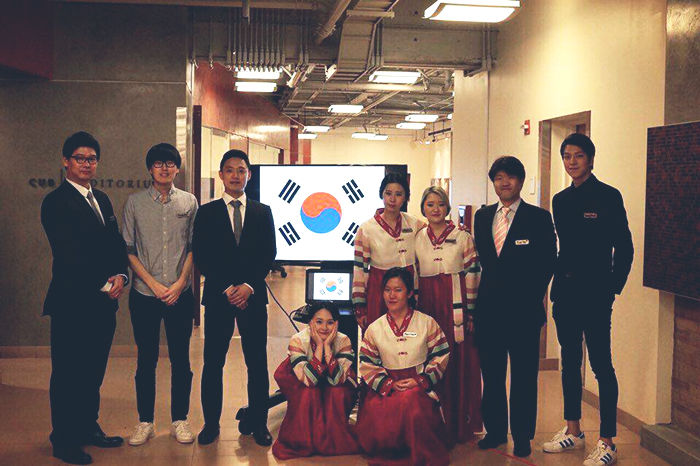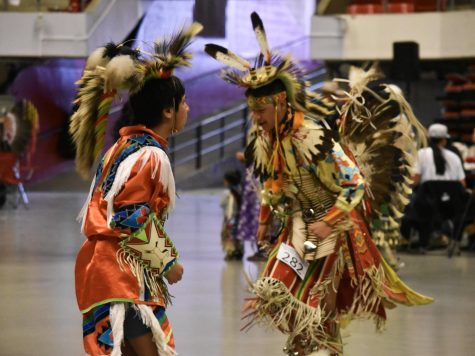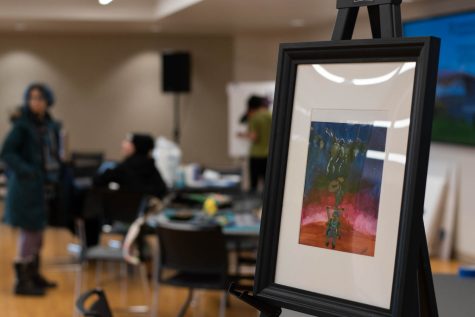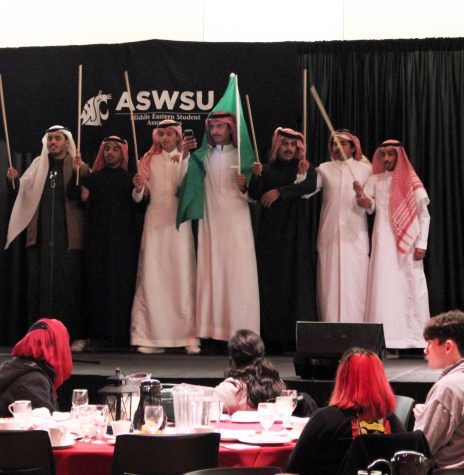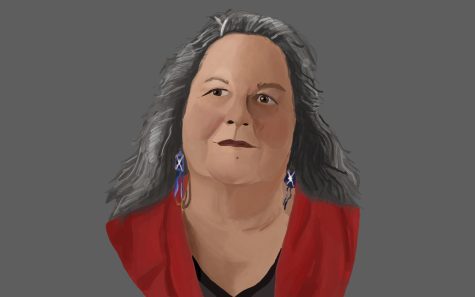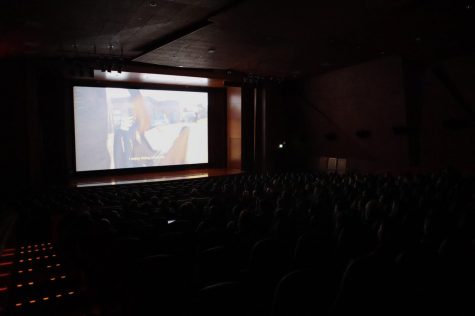Korean film full of history and social justice awareness
Korean Student Association members dressed in traditional Korean garb for their showing of “Spirits’ Homecoming,” a film about Korean sex slaves during World War II.
April 12, 2017
The Korean Student Association (KSA) showed a film yesterday that highlighted Japan’s violations of Koreans’ human rights during World War II, for which the government has yet to apologize.
This situation is comparable to Germany’s admittance of fault under the Nazi regime during World War II, KSA External Liaison Harrina Hwang said. However, while Germany formally apologized to the Jewish population drastically affected by the Nazi Party, the Japanese government has yet to do so to survivors and victims of the war, she said.
KSA presented “Spirits’ Homecoming” last night, a Korean drama based on the true story of two young women who were captured by the Imperial Japanese Army and forced to serve as sex slaves after the army’s takeover of Korea during World War II.
“The Imperial Japanese Army government created comfort facilities where their army men at the end of the day could go and do what they wanted to do,” Hwang said. “These women were not mature women by the way, they were age 14 or 16.”
Although the phrase “comfort facility” may sound appealing and acceptable, in reality, it was coined to cover up the inhumane way the Japanese government and soldiers treated the Korean women.
“The thing was, the word ‘comfort’ was on behalf of the Japanese army, not for the women. They were forced to provide sexual favors to these army men,” Hwang said. “They had no choice at all. They were beaten very brutally, very harshly.”
The Imperial Japanese Army recruited about 200,000 women as prostitutes, according to an article in the Huffington Post.
“As a Korean identity, this affects Korean people’s viewpoints, like their perspective on Japan,” Hwang said. “In that sense, I think that’s very important and relevant to Korean culture.”
KSA hoped this event would shed some light on a conflict between two nations that has yet to be completely resolved, KSA President Jaehoon Jang explained.
“We, Korean Student Association, represent Korea, Korean people, Korean culture, history, everything … ‘Spirits’ Homecoming,’ the movie itself is about history,” Jang said. “I want to show that to the world, or at least the WSU community, what happened because no one is trying to show that to the other community. I think that it’s our duty to do it.”
Although the “comfort facility” issue occurred decades ago, as of 2015, the Korean government was compensated about $10 million for the event, but never received an official apology from Japan, Jang said.
“Germany has done exactly the same thing too but they regret it,” he said. “If they wave that Nazi flag, they get arrested in Germany.”
“Spirits’ Homecoming” was meant to share with viewers the conflict between Korea and Japan that has lasted decades because of a mistake made in the middle of war.
At the event KSA officers dressed in traditional Korean Hanbok clothing that traces back thousands of years, Hwang explained. They also gave out pamphlets in English to explain the historical significance of the film in more depth.
As part of the International Film Series, another Korean film, “Nobody’s Daughter Haewon,” will show at 5 p.m. on April 14 in Todd 130. Admission is free.

